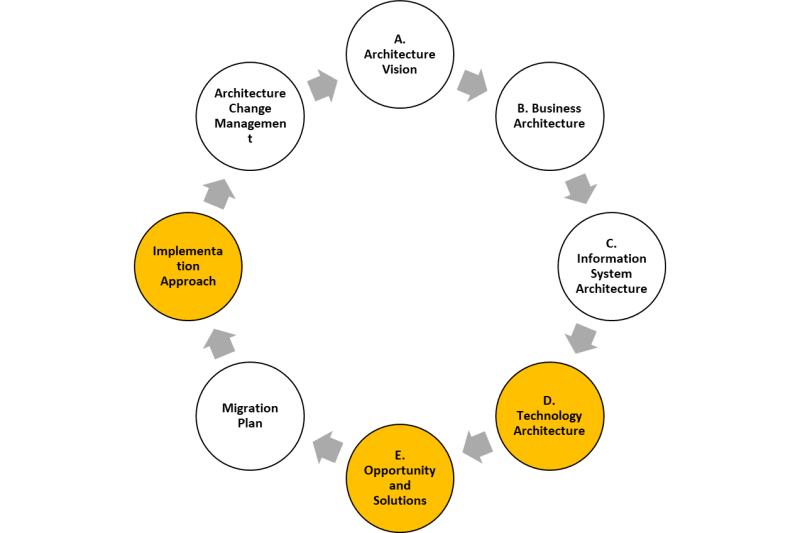Intro:
TOGAF (The Open Group Architecture Framework) comprehensive approach for designing, planning, implementing, and managing an enterprise information technology architecture. CRISP (Cross Industry Standard Process for Data Mining) is a standard process used for developing machine learning models. It is a cyclical process that involves four phases:
Inspiration / Problem Identification
EDA and Data Engineering
Feature Engineering & ML Models
Operationalise
The blog is exploring the key themes to overlay TOGAF framework and ensure the Architecture engagement to implement machine learning implementation
Integrating the CRISP Cycle with TOGAF:
Inspiration / Problem Identification
- Validate Alignment to strategic business drivers
- Capture the Business process involved
- Define the Business KPI that needs to measure model performance
- Evaluate the current process and capture any change in business process to improve the data capture
- Evaluate the re-usability with other processes
EDA and Data Engineering
Data Sourcing:
- Identify the system of record for the data in scope
- Identify industry relevant sources for data pertaining to business domain
- Data security consideration (Privacy and reuse)
Data Engineering
- Design the data engineering Strategy (Frequency of refresh, Feature engineering and reusability, Data profiling and Data cleansing)
- Data Quality
EDA
- Detect outliers and anomalies and understand the business context
- Validate the hypothesis of the business case
Feature Engineering & ML Models
- Cost Vs Performance consideration
- Build vs Buy decision
- Dependencies cost and benefit of model options
- Selection of technology stack
- ML Ops
- Evaluation of parameters
- Explainable AI and Model Transparency
- Framework to evaluate the model continuously
Operationalise
- Define the Service level agreement on ML usage
- Define the NFR’s of serving API’s
- Model version management and change management strategy
By integrating the CRISP cycle into the overall enterprise architecture process using the TOGAF framework, organizations can ensure that their machine learning models are developed and deployed in a consistent and effective manner that aligns with the overall goals and objectives of the enterprise.










Top comments (0)